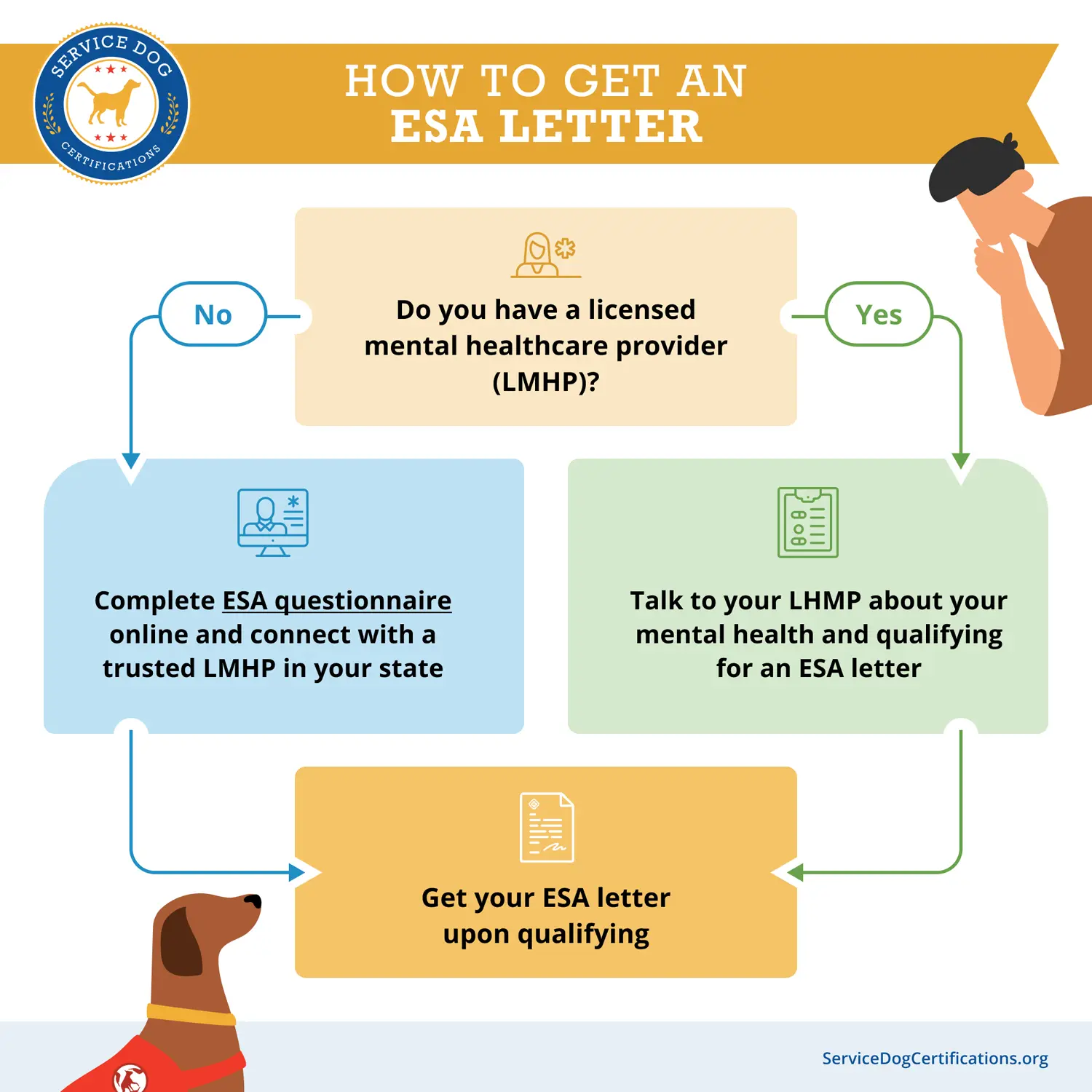Who Can Write an ESA Letter?

An ESA letter can be written by a licensed healthcare professional who understands your mental health needs. This is required by federal housing guidelines and state laws, which state that an ESA letter is not valid unless it comes from the right kind of provider.
An ESA letter allows you to live with your pet in a place where pets are usually not allowed. It’s important to get the letter from the right source so you can be confident that your pet has a home. In this article, we’ll tell you who can write an ESA letter and who cannot.
Professionals Who Can Write ESA Letters
- Social Workers
- Therapists (psychologists, psychiatrists, counselors)
- Primary Care Physicians
- Nurse Practitioners
Social Workers
Social workers are professionals who help people deal with various life problems, including mental health issues. Licensed clinical social workers (LCSWs) can write ESA letters. They are trained to understand mental health conditions and can determine if an ESA will benefit you.
Social workers are a popular source for ESA letters, especially for vulnerable members of the population.
Therapists
Most people get an ESA letter from a therapist, who can write ESA letters. Therapists, like psychologists, psychiatrists, and counselors, are mental health professionals who diagnose and treat mental health disorders.
Therapists have a deep understanding of mental health and can provide a thorough evaluation to determine if an ESA is right for you. If you are seeing a therapist for therapy, they can provide the necessary documentation for an ESA.
Primary Care Physicians
Primary care physicians can write ESA letters. PCPs often know their patients well and can understand their mental health needs. If you have a good relationship with your primary care physician, they can evaluate your situation and provide an ESA letter if they believe it will help your mental health.
Keep in mind, however, that most ESA letters are not from PCPs. They more often come from therapists and professionals who are more focused on a person’s mental and emotional well-being, like licensed therapists and social workers.
Nurse Practitioners
Nurse practitioners (NPs) can write ESA letters. NPs are advanced practice nurses who can provide many of the same services as doctors. NPs are trained to assess and treat various health conditions, including mental health issues.
If your NP is familiar with your mental health needs, they can provide you with an ESA letter. However, not all nurses are trained to recommend an emotional support animal for their patients.
Professionals Who Don’t Write ESA Letters
Not all healthcare providers can write ESA letters. Here are some who cannot:
- Chiropractors: Chiropractors focus on physical issues, like back pain, and are generally not trained in mental health. They cannot write ESA letters.
- Physical Therapists: Like chiropractors, physical therapists deal with physical rehabilitation and do not have the training to assess mental health for ESA letters.
- Dentists: Dentists specialize in oral health and are not involved in mental health care. They might technically be qualified to write ESA letters, but they will usually not do so since it is outside their field of expertise.
- Nutritionists: Nutritionists specialize in diet and nutrition and do not have the training or licensing to address mental health conditions. They cannot provide ESA letters.
No matter who you get your ESA letter from, it’s important to ensure the person writing your ESA letter is qualified and understands your mental health needs. If you’re seeing a new provider, you can ask beforehand whether they are capable of writing ESA letters. You can also get an ESA letter online remotely through a telehealth consultation.

About the Author: The writing team at Service Dog Certifications is made up of folks who really know their stuff when it comes to disability laws and assistance animals. Many of our writers and editors have service dogs themselves and share insights from their own experiences. All of us have a passion for disability rights and animals.
Latest Posts

Can you bring a service dog to a museum?
Yes, you can bring your service dog to the museum! All the major U.S. museums welcome guests with service animals in accordance with the Americans with Disabilities Act (ADA). There are some areas, however, that might be off-limits. Here’s what you should know if you plan to spend a day at the museum with your […]

Read More

How to Bring a Service Dog to Six Flags Magic Mountain
Service dogs are welcome at Six Flags Magic Mountain so long as they are, according to Six Flags, “trained to do work or perform tasks for people with disabilities.” Of course, your dog must be housebroken and remain on a leash or harness and under your control while at the park — and the park […]

Read More

When Stores Can Refuse Your Service Dog
According to the Americans with Disabilities Act (ADA), service dogs should be allowed into any store most of the time. A store owner can legally exclude a service dog if they are actively growling, snapping at, or frightening customers, or if the dog is obviously out of the control of its owner. Ordinary behaviors — […]

Read More